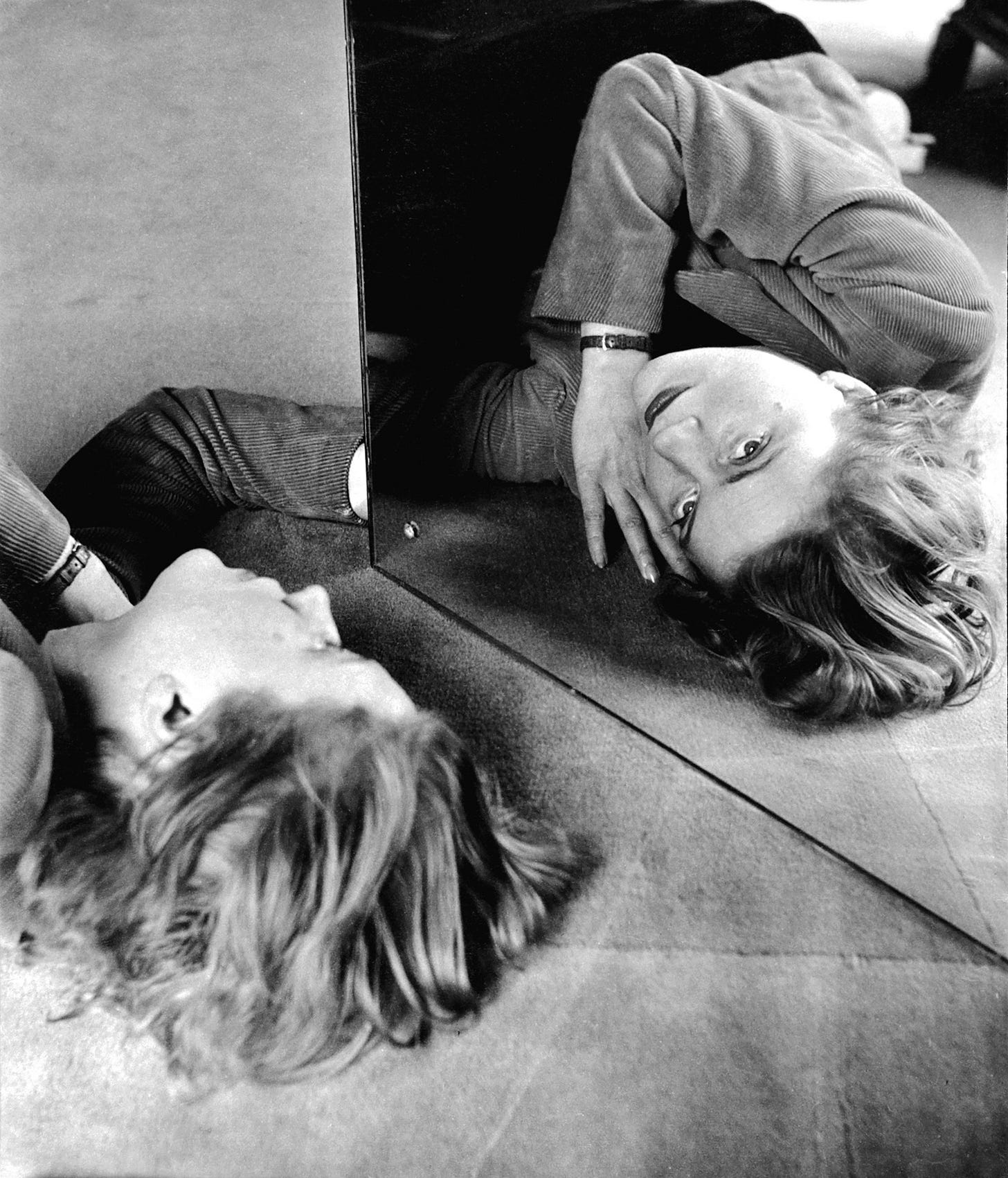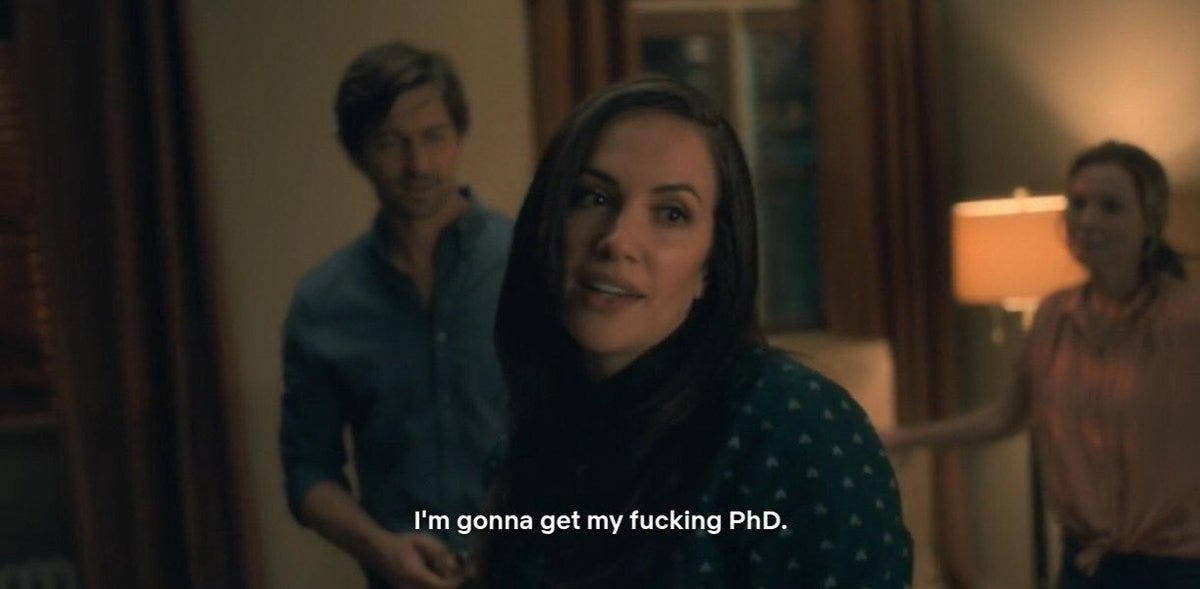dear coven,
happy june! there is much excitement to be had this month; it’s pride month, summer is nearing, the days are longer. for me, this month is marked by drastic change. but before i begin let me tell you a little bit about ‘letters from the coven’, a new series for this newsletter.
i will start off by saying that i am in absolute awe of the number of people who have chosen to support this newsletter by subscribing. i am beyond grateful. i have been researching surrealism and the occult for the last four year during my phd studies and to know that there are so many out there who are interested in viewing painting, literature, and film through the prism of magic fills my heart with joy! this is the aim of surrealist covens and that aim remains the same. but i wanted to do something slightly different on a monthly basis. i want to get to know you, the reader, but i can’t really do that unless you get to know me as well. letters from the coven is my way of doing this, a monthly letter from me to you, an update on what i’m currently researching, on university, on life, and a check-in with you.
if that’s something you’re interested in, do stick around, but if you’d rather continue reading my art history posts instead, there’s plenty to explore in my recent substack articles and much to look forward to in the coming weeks.
now, let’s get personal.
last week, on the 30th of may, i had my viva voce, aka my thesis defense. the event that fills the majority of phd candidates with dread before they even begin typing their introduction chapter. essentially, it is an oral exam in which you are thoroughly questioned for each choice you have made in regards to your thesis from chapter structure to the very basis of your argument. the viva is a rigorous academic exercise, one which i envisioned as no less challenging than a sparring match, and as an event filled with as much tension as oppenheimer’s security clearing. that vision, was not a million miles away from the truth. i’m kidding, of course, but the anxiety was palpable.
what helped me prepare for this chaotic rollercoaster of emotions i’m about to take you on is reading other people’s experiences. my re-telling of what happened during and after my viva is my way of giving back, as well as getting it off my chest, hopefully this helps someone, or at the very least, it entertains you.
in this letter i will talk to you about the experience of defending a phd thesis and of preparing for a viva. i will share the outcome, and i will include some resources i found helpful at the end of the letter. let’s put on our dark academia hats and go on a journey.
for some context, the aim of my research is to untangle the complex relationship of magic and surrealism for those at the heart of the movement, but especially for those on the periphery. my thesis is effectively separated into three parts - firstly, a close appraisal of the founder of surrealism, andré breton and his investigation of the occult, secondly, an evaluation of leonora carrington’s exploration of magic in and beyond surrealism, thirdly, a consideration of her work in relations to the artists remedios varo and leonor fini.
i am very proud of my work and my ultimate goal is to turn it into a book one day. it took years of research, about a year and a half of writing and editing, and the viva was the culmination of all of that work.
in england the viva panel consists of two examiners, one external examiner from another university, and an internal examiner from your university. there’s an independent chair who ensures everyone is on their best behaviour, and your supervisor can also attend, if you wish. i wanted my supervisor to attend, which she did, and while she is not allowed to speak during the process, her support was felt through the screen (my viva was online). these are real people, important people, people who have dedicated an incredible amount of time and effort to read my work and engage with it deeply and i am so grateful to them for doing so. i’m not going to give away any details on who they were, nor do i plan to disrespect them in this post, which is really just an overview of what happened and what you might expect if you have such an event coming up in your life. all i will say is that they are experts in their field, they are people i respect, and in that moment they were the wielders of my destiny.
the viva usually begins with a question of how you arrived at your topic of choice. i went into a little bit of detail on this and then we got right to the nitty gritty. i was asked extensively about my methodology, my choice of sources, my structure, my views on feminism and gender, my choice to dedicate my first chapter to breton, my neglect of some areas of investigation and the special attention i gave to other areas.
to my surprise i was not asked that many details about the actual text. i was expecting them to ask about an argument i had made on a certain page, particular citations i had used, things like that. this didn’t really happen, they mostly focused on my process and my choices of methodology and structure. my thesis incorporates a large number of disciplines, i talk about surrealism, painting, literature, but also folklore, magic, anthropology, history of medicine - it’s a lot. and they knew this and they clearly wanted me to justify this. i believe that i did, but god, was it a grilling.
after about two hours of questions, which included a ten minute break, my supervisor and i were asked to leave the call while the examiners discuss the outcome with the independent chair. essentially, you are asked to step away as they discuss whether they will pass you or fail you.
before the viva i was told that in 99% of cases, the examiners make this choice long before you meet them. the reason you have to go through a defense more than anything is so you can prove that you wrote your work, that you understand your work, that you stand by your work, but that you also know which areas of your work are imperfect, because everything you do will always be somewhat imperfect (especially at this stage). plus, a good supervisor will never let you get to this stage if they think your work is not good. and i don’t just have a good supervisor, i have an incredible, fantastic, show-stopping supervisor.
the week before the actual viva i had a mock viva in which i did very well and was told that i will most likely pass with corrections. dear coven, spoiler alert, this is exactly what happened, but before i could hear the outcome, what happened is that i left the call and was not invited back for forty minutes. forty. minutes. FORTY. MINUTES.
forty minutes pacing around my one-bedroom apartment, forty minutes of texting my mom and my partner frantically. forty minutes of staring out the window which looks upon a cathedral, thus forty minutes of thinking - if there is a god, if there is any higher power out there, if it happens to reside in this holy building, please, please, do not let them fail me.
as each minute of these forty minutes ticked i resigned to my fate. i started picturing them debating whether i should pass, whether any of this was worth their time. i saw clearly how they discussed the manner in which they should tell me - you failed. try again. in two years. or maybe never! have a good day.
after those brutal, torturous forty minutes, my supervisor and i were invited back into the call. the chair started off by saying i had passed, i breathed a sigh of relief, and then he finished his sentence by saying - with major corrections. my head started spinning.
let’s pause for a second and talk about corrections.
when it comes to a phd in england, it’s a pass or fail system. no distinction, no merit, no grade. you either pass, or pass with corrections. up until recently the options for corrections were 3 months, 6 months, 9 months, or 18 months. my university dropped the 6 months option, which means that unless you get given up to 3 months, any corrections you make is considered ‘major corrections’.
minor corrections include small mistakes like typos, grammar, and bits you can fix easily. major corrections include bits that take a bit longer like adding information, removing information, or re-structuring your chapters. when they send you the list of corrections they are precise and specific, they don’t include vague suggestions. doing corrections is the one time during your whole phd where you know quite clearly all that you need to do.
the panel said that they took my full-time work commitments when making a choice, that they enjoyed my thesis, and that i defended it passionately, but that i needed to make a few adjustments. i have not seen my corrections yet, but judging from how the viva went, i assume they will make me add a longer literature review and a bit more justification in places where i use specific sources.
all of that sounds pretty reasonable, right? well, yes, but not in the moment. as they congratulated me and said i will be a doctor, i didn’t feel any sense of accomplishment. i felt that i had failed. i put on my gracious loser face, thanked them for their time, left the call, and had a cry.
i texted my family and friends saying - good news! i passed. as they congratulated me i was quick to add - BUT. i got up to 9 months for corrections. they continued cheering me on, saying that i did it, i passed the phd, i should be happy.
but i wasn’t. and i’m not the only one as you can see here, here, here, here, here and all over the internet.
i think part of the issue here is language-based. had they said that i need to amend elements of my thesis and i have up to 9 months to do so, i would have most likely felt a bit better about it all. not to be sour, but ‘major’ and ‘corrections’ paired together sounds like ‘your thesis is garbage and you need to re-write the entire thing’.
after about half an hour of getting myself together i had a de-brief with my supervisor. she was stunned by the result, she expected me to pass with flying colours and 3 months for corrections at most - both of my supervisors did. she was disappointed, but not in me. she said i handled myself like a superstar, she was a bit taken aback by some of the questions i was asked, and reassured me that i handled them like an expert. she let me know i don’t need to wait until month 9 to submit my corrections, i can do it as soon as i’m done with them, which is exactly what i plan to do. she made sure that i knew i must take the time to celebrate. i had passed my phd and i can own this forever, it was a huge accomplishment. in that moment, i adored her more than words could describe, despite my tears.
after my call with her i felt slightly better. i texted my concerned friends and family members that i was taken aback, but that ultimately, i had done the thing. i just didn’t feel great about it yet. still, i forced myself to go out and celebrate. i had dinner with my partner, i posted about it on social media, i tried to force myself into feeling relief and not going over every little detail of the viva.
phds take years, to get added time feels like a failure. this is what was rattling me, alongside the insurmountable positive feedback from a huge chunk of people i had received beforehand, which raised my expectations. the result does not negate this feedback, but the rory gilmore in me was crushed. also, when you have dedicated so much of your life to your thesis, it’s hard not to see criticisms of it as a personal attack, despite this not being the case. another factor that was particularly disappointing was that i’m planning to apply for a post doc and that i really wanted to have a graduation this year. it’s far from impossible to still achieve these goals, i just have to put the work in. i will do the corrections as quick as i can and i will most likely update you on what they are. at the end of the day, it’s been 4 years, what’s another few months of work?
i’m proud of how i did at the viva. i did not crack, i stood by my arguments, i conceded where i needed to, and i held it together until the very end. everyone else seems to be proud of me, so i reckon it’s okay to feel that way about myself as well.
so that’s what happened! i cannot tell you what to expect if you have an upcoming viva, since they tend to be unique to the candidate, thesis, and examiners. what i can tell you is how i prepared for it, which in all honesty could be useful tips for anyone looking to engage with their writing on a deeper level.
firstly, my preparation for the viva started long before submission. during the editing process i examined each sentence, i made mental notes on some of the questions they might ask me, i weighed up what sources to include, anything i took out i stored on a separate document, so i could bring up what i intentionally left out. i almost felt like a lawyer going through my thesis like a case and making sure the prosecution has nothing to work against me.
after i submitted the thesis i left it alone for a while so i could approach the viva prep with a clear mind. when i felt ready, after about a month and a half away from the thesis, i began reading up online on some of the broader, non-specific questions they might ask. i noted down ones which i thought would be most relevant to me.
then i began thinking about the specifics. for me, it’s best to work off of a structure, so what i did is i separated the questions into sections - a section for each chapter, a section of broader questions, a section of questions about my bibliography and methodology, a section about the structural choices i had made, and so on. i tried to write up at least 10 questions for each section. i put in bullet-point style answers to the questions. writing out a paragraph of an answer and then attempting to memorise it is bad strategy in my opinion, it’s much better to work off of talking points. not only is this adjustable, but you don’t run the risk of tripping over your words, or freaking out if you misremember parts of your answer.
after i had written down my talking points, i spent some time speaking them out loud. it’s crucial to do this. only rehearsing in your head allows for other thoughts that can distract you and it doesn’t give you a good idea of how long your answer is, nor does it indicate to you if it actually makes sense unless you hear it out loud.
i also wrote out some ‘nightmare’ questions - questions i was terrified they would ask me, ones that i would struggle to answer in the moment. none of those were asked, but it’s good to be prepared.
i decided there is no point in worrying about hyper-specific questions they might ask, while you have to be prepared, ultimately, when you can’t predict what those questions look like, you will only end up freaking yourself out.
lastly, i re-read my thesis and made a few notes along the way. the week of my viva i did a surprising lack of preparing. i had already done a lot, and if i’m honest, there was nothing i could do in that week that would dramatically change the outcome. so i tried to breathe. i also had a mock-viva with my supervisor in which i could answer some of the questions they thought i might get asked - if you have a chance to do this, do it 100%, it’s really helpful.
from my experience i can say it’s crucial to prepare for those general questions - why did you choose this topic? can you describe your findings in a few sentences? what about in one sentence? what are the most important texts to your thesis? what would you do differently if starting over today? these will get asked, and in my case, they took up nearly the entirety of the viva. you can do some digging yourself, but at the end of this newsletter i will add a few sources that were very helpful to me.
some final thoughts!
the point of the viva is to challenge you, and my viva was challenging. i am happy that it was challenging. it made me feel like i earned it, like i stood by my work firmly. i passed my phd and i never have to do a viva again.
you have spent years on your thesis, so it’s only natural that you view it as your magnum opus, it’s perfectly normal for you to see it as an extension of yourself, because years of your blood, sweat, and tears dripped onto the pages of your thesis. however, what must always be kept in mind is that a thesis is not and shouldn’t really be your magnum opus. universities view it as an exercise in research, as a display of your skills and an indication of what you can do in the future. it is not the end. the end-goal of doing a phd isn’t for your thesis to be your biggest intellectual challenge - it is just the beginning.
i have prattled on for a while and i hope this was of some interest to you, maybe even helpful. not every letter i write to you will be as academically centred as this one, but it’s the most honest account i can give of what’s been happening with me and what’s been occupying my mind.
now it’s my time to check in with you. i hope you have been enjoying my posts, i have loads of fun articles coming up, but i always like to hear from you, so if you have any artist or topic you’re interested in learning more about, please share in the comments!
i’m curious to know if any of you are facing a challenge in your near-future and how you’re approaching it. i’m also interested to hear how you deal with criticism of your work and if you have any experience in academia and its highs and lows. i want to know it all, so do let me know, leave me a comment, or shoot me a message.
with the greatest of love,
dani
viva preparation resources
100 possible questions for your viva exam
top 40 potential viva questions
Tip Jar ☕
Recent articles:





















Congratulations Dr! 🥳 Nolite te bastardes carborundorum etc. Most of my friends passed their PhDs with major corrections. It's awful wording.
Looking forward to reading your monograph one day 😊
I've only recently found your work and I'm so incredibly excited about what your thesis was about... It's so up my alley, bring on the book!! Congratulations. I hope it sinks in a bit deeper soon.